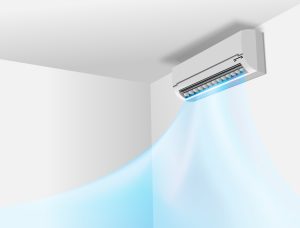
Like it or not, winter is coming. And in many areas, winter weather is already here.
Households across the nation are starting to turn on the heat, and with increased inflation rates, analysts are warning of higher heating bills this winter.
In October, the Energy Information Administration said U.S. households are expected to spend more on energy now through March than recent winters, according to a USA TODAY report. The higher cost is due partly to higher fuel prices and increased heating demand, with forecasts predicting slightly colder weather this year.
Cincinnati winter weather:We could ‘shake, shiver and shovel’ this winter; Farmers’ Almanac warns of ‘biting cold’
Areas of your house or apartment can also leak the warm inside air through small crevices and cracks, and allow the cold air to seep in, including windows, fireplaces, walls, doors, roofs and power outlets.
Looking to save as much money as you can this winter? Here are 10 tips.
10 ways to help save money on your heating bill
None of these tips will totally reduce your bill, but here are a few ways you can possibly save money during the colder months.
Recession preparation:What to avoid, what to buy? How to financially prepare for 2023 — in case of recession
Turn down the thermostat
Lowering the thermostat by up to 10 degrees can help save up to 10% on heating annually, according to SMO Energy. The recommended times to turn it down are at bedtime, while you’re sleeping and before leaving for work or school in the morning, when no one will be home.
Close doors to unused rooms
If there are rooms in your home that you only use occasionally, make sure their doors are kept closed in the colder months. The heat will remain in the room, and your HVAC system won’t have to work as much to heat the extra space.
Bundle up!
This may seem like the obvious answer, but throw on a sweater, your favorite fuzzy socks and sit under a blanket before raising the thermostat.
Cook or bake more
Who doesn’t love baking or making a soup when it’s cold out? Using your stove and oven will naturally heat the space, plus it will result in a delicious outcome.
Turn down the water heater
A typical water heater is 140 degrees, and manually reducing it to 120 degrees can save up to 11% in water heating costs, according to the California Energy Commission. Reducing shower times can also help, and cutting them in half can save up to 33%.
Close unused vents
Like gaps in doors and windows, vents can also usher cold, unwanted air inside. Just like shutting the doors to unused rooms, this will cause the heat to redirect to spaces you want to be warm.
Open curtains during a sunny day, close them at night
We might joke about not seeing the sun in the winter, but when it does come out, it can act as a natural heater for your house. Take advantage of those sunny days, and be sure to close curtains and drapes at sundown to keep the heat inside.
Use an electric blanket
Nothing is cozier than getting into a warm bed at the end of a cold day. Use an electric blanket or invest in flannel sheets to make your bed warmer without having to turn up the thermostat.
Use your ceiling fan
Did you know you can change the direction your ceiling fan spins? Changing it so the blades rotate clockwise will help move the heat trapped near the ceiling down the walls and around the room.
Change your filters
When was the last time you replaced your filters? When they are clogged and filled with dust or other debris, it will make your furnace work harder, raising costs. Be sure to pay attention to how frequently the filters need to be changed and actually follow that advice, as it will keep saving money in the future.
How to get help paying for your heating bill
If you’re having trouble affording your heating bill, Duke Energy offers the Home Energy Assistance Program, which may help pay part of your heating bills if you qualify as a low-income household. Applications for the program may differ by state, so visit Duke Energy’s website for more information.
For Ohio customers in Duke Energy’s service territory, the Ohio Electric Residential Low Income Pilot Program provides a whole-house weatherization service to low-income customers. The program provides assistance to eligible low-income, low-usage, natural gas customers by making lower rates available.




